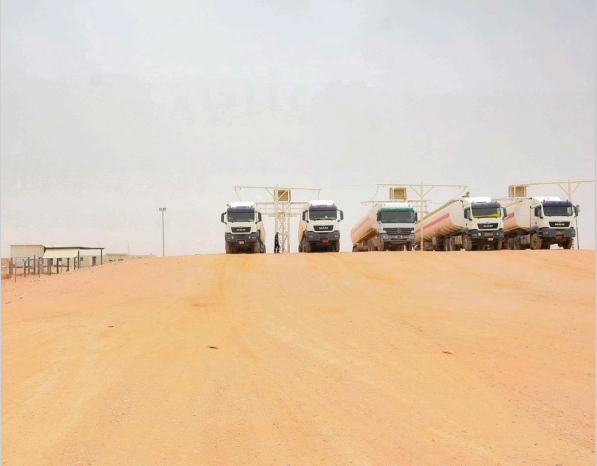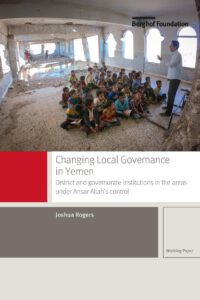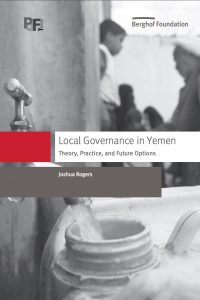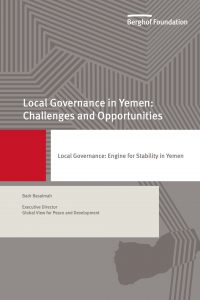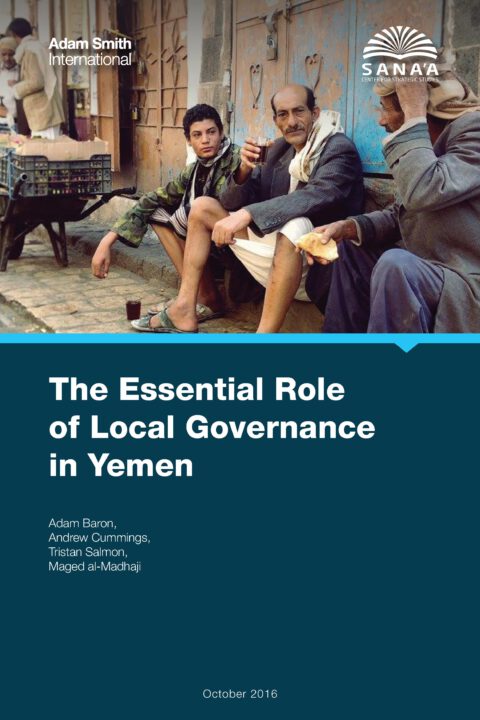
Overview of the challenges facing local governance in Yemen, focused on Sanaa, Dhamar and Aden
Yemen’s local councils are responsible for the day-to-day provision of basic public services to 26 million Yemenis and are amongst the most crucial institutions of governance in the country. However, the outbreak of civil war in 2014 and the subsequent Saudi-led military intervention in Yemen in March 2015 has devastated local councils’ ability to provide these services: financial resources have evaporated, armed militias challenge their authority, and extremist groups such as Al Qaeda and the Islamic State have assassinated council members. Despite the challenges, local councils have been generally resilient and continue to operate in some form in most parts of the country, though they have been rendered ill-equipped to handle the largest humanitarian crisis in the country’s history.
This paper assesses the historical context through which the local councils came to prominence, their role in decentralization and governance, the challenges they have faced through the uprising and civil war, and their essential role in any negotiated cessation of hostilities and post-conflict reconciliation. This paper will examine why it is critical for the international community to coordinate with and channel humanitarian support through the local councils, given that this would help alleviate widespread suffering, help sustain this crucial form of governance in Yemen, and prevent jihadist groups – most notably Al Qaeda – from exploiting gaps in basic services to garner support.
To provide a balanced view of the challenges facing local governance in Yemen, this paper focuses on three specific areas of the country: Sanaa, which is currently under the control of the Houthis and their allies; Wessab, in central Yemen, currently controlled by local councils in coordination with the central government in the capital; and Aden in South Yemen, currently under the nominal control of the internationally recognized government.
Other resources you may be interested in:
Corruption in Hadramawt’s Electricity Sector
Analysis of the situation of the electricity sector in the governorate of Hadhramawt, highlighting problematic procurement practices to the benefit of a few influential public officials and business moguls, and calling for more accountability, transparency and oversight. Corruption in Hadramawt’s Electricity Sector
Recovering Lost Ground in Shabwa’s Oil Sector
Policy brief highlighting the pivotal role of the governorate of Shabwah in Yemen’s oil sector. It criticises the predominant role of international oil companies and the central government in Shabwah’s oil sector, and proposes a localisation, including the establishment of a local oil refinery, to meet local demands and to become more sensitive to developmental, […]
Land for the Powerful: Property Violations in Aden
Discussion of land and property disputes in Aden, with a focus on the wrenching historical discontinuities in Aden and the way that they have directly affected private and public property rights.



